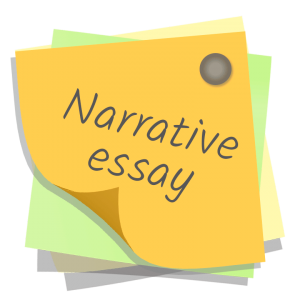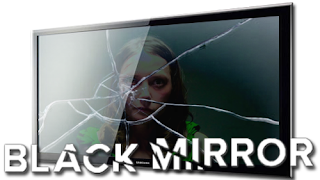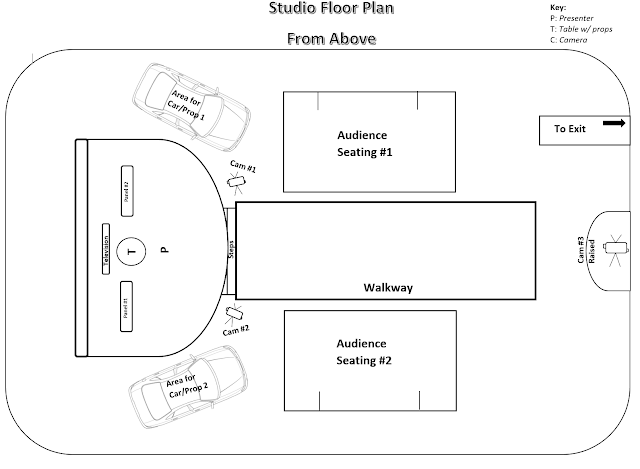Dissertation Proposal - Sourcing My Idea
Understanding Our Dissertation
Dr Caleb Turner is an associate lecturer that will be taking us bi-weekly in order to prepare us for the research and intellectual context of our approach to our dissertation next year. Clarifying and organising my ideas is key to ensuring I can produce the best piece of work I possibly can.
We already have good experience with Film/TV/Media Studies courses on theory and/or art backgrounds... therefore the proposals can build on a solid foundation of academic substance in more depth.
Matching Interests with Academia
This is not meant to be a prescriptive list, but can be mixed and matched depending on your question and case studies, and also there is more not necessarily covered here that may be indirectly linked...
Formalism - the elements that make up and structure the films 'form'
Style:
- Mise-en-scene (performance, colour, lighting, set design and props, costumes/make-up)
Editing:
- Continuity Editing (Axis of Action, Alfred Hitchcock etc)
- Discontinuity Editing (Soviet Montage)
- Art House Cinema (Jean Luc Goddard)
- Avant-Garde/Experimental (Stan Brakhage)
Cinematography:
- Framing
- Composition
- Frame Rate (HFR content such as The Hobbit Trilogy, presented in 48 frames per second)
- Narration (and Narratology - Bordwell, David (1985): Narration in the Fiction Film):
- Story and Plot
- Characterisation
Realism and Social Realism
- Documentary Modes (Poetic, Expository, Observational, Participatory, Reflexive, Performative).
- Poetic realism (e.g. deep-focus photography long takes in Citizen Kane)
- Neo-Realism (e.g. non-professional actors, documentary affects handheld cameras, no editing, natural sets etc).
- British Realist
- Social Realism
- Sociology of Urban Spaces, Class Systems, etc.
Auteurship
- Francois Truffaut (Auteur policy, 400 Blows)
- Andrew Sarris (Auteur Theory, three concentric circles of: technique, personal style and interior meaning versus metteur-en-scene).
- Roland Barthes (Death of the Auteur - viewer as author)
- Auteur structuralism (Wollen - author as unconsciously channelling social conventions)
- Post-Auteur - as a head of collaborations with actors, producers, screenwriter, branding, etc).
Genre Theory
Formal Elements:
- Iconcography
- Tone
- Narrative Elements
- Plot
- Themes
- Archetypes
- Rock Altman: Semantics (vocabulary or 'ingredients' and Syntax (Structure or grammar)
- Thomas Schatz: Social Order (Westerns, Action) versus Social Integration (Musicals/Romance)
- Steve Neal: Differences and Repetition of Formulas, Familiarly and Innovation
- Categories (e.g. Hollywood: Westerns, Musicals, Gangster, Swashbucklers, Melodrama etc.
Spectatorship
Psychoanalysis:
Cognitivism:
- Recognition, Alignment and Allegiance of Characterization.
Feminism:
- Postfeminist and Consumer 'Choice' of branding, beautification and neoliberal exploration in New Femininities: Postfeminism, Neoliberalism and Subjectivity.
- Androcentrism - Simon de Beaviour, Mary Ann Doane, Film and the masquerade
Representation:
- Class
- Sexuality
- Gender
- Psychoanalysis
Postcolonialism, Multiculturalism, Race and Ethnicity
- Orientalism - Edward Said
- Third Cinema versus Eurocentrism
- Racial Gaze
- Positive and Negative Stereotypes
Digital Cinema
- Manipulation of Spaces and Early Effects - Melies/Lumiere Bros.
- Perceptual Realism and Photorealism
- Persuasion Tactics and Paratexts
- Remediation
- Motion Capture and Performance
- Humanness and technology
- Codes and Contestable mapping
- Transmediality
- Participatory Culture and Citizen Journalism
- Convergence and Spreadable Media
Animation
- Early Animation
- Disney
- Warner Bros and UPA
- Pixar
- Music and Abstraction
- Anime
- Stop-Motion
Industry, Production, Distribution
- Commercialism, Globalization, Marketing, Ratings, Franchises, Money and Spectacle
- Hollywood Studio System: 1920's - 1960's.
Art and Fashion in Film and TV
- Art History
- Surrealism
- Dadaism
- Situationism
- Mannerism
- Cubism
- Abstract Modernism
- Deconstructionist
- Precisionist
- Renaissance linear perspective
- Rococo
- Punk, Mods, Grunge, Indie.
Stars and Stardom
- Star System
- Studio System
- Celebrity Studies
- Star Presence
Audience Reception
- Gathering informations and codes of behaviour - who, why, where, how?
- Sources (newspapers, magazines, posters, industry records, interviews)
- The Hyperdermic Needle model (films not complex enough to stimulate the audience to question what is being shown).
Politics and Political Economics
- Globalisation, Neoliberalism and Free Markets
- Marxism and Frankfurt Schools
Structuralism and Post-Structuralism
- Semiotics - Signifier and signified (Saussure)
- Mythology - Levi Strauss
- Deconstruction (Derrider)
- Postmodernism
Film and TV History, Cultures, Criticism, Festivals...
... or any thing else that I've yet to have mentioned.
Dr Caleb Turner is an associate lecturer that will be taking us bi-weekly in order to prepare us for the research and intellectual context of our approach to our dissertation next year. Clarifying and organising my ideas is key to ensuring I can produce the best piece of work I possibly can.
We already have good experience with Film/TV/Media Studies courses on theory and/or art backgrounds... therefore the proposals can build on a solid foundation of academic substance in more depth.
Matching Interests with Academia
This is not meant to be a prescriptive list, but can be mixed and matched depending on your question and case studies, and also there is more not necessarily covered here that may be indirectly linked...
Formalism - the elements that make up and structure the films 'form'
Style:
- Mise-en-scene (performance, colour, lighting, set design and props, costumes/make-up)
Editing:
- Continuity Editing (Axis of Action, Alfred Hitchcock etc)
- Discontinuity Editing (Soviet Montage)
- Art House Cinema (Jean Luc Goddard)
- Avant-Garde/Experimental (Stan Brakhage)
Cinematography:
- Framing
- Composition
- Frame Rate (HFR content such as The Hobbit Trilogy, presented in 48 frames per second)
- Narration (and Narratology - Bordwell, David (1985): Narration in the Fiction Film):
- Story and Plot
- Characterisation
Realism and Social Realism
- Documentary Modes (Poetic, Expository, Observational, Participatory, Reflexive, Performative).
- Poetic realism (e.g. deep-focus photography long takes in Citizen Kane)
- Neo-Realism (e.g. non-professional actors, documentary affects handheld cameras, no editing, natural sets etc).
- British Realist
- Social Realism
- Sociology of Urban Spaces, Class Systems, etc.
Auteurship
- Francois Truffaut (Auteur policy, 400 Blows)
- Andrew Sarris (Auteur Theory, three concentric circles of: technique, personal style and interior meaning versus metteur-en-scene).
- Roland Barthes (Death of the Auteur - viewer as author)
- Auteur structuralism (Wollen - author as unconsciously channelling social conventions)
- Post-Auteur - as a head of collaborations with actors, producers, screenwriter, branding, etc).
Genre Theory
Formal Elements:
- Iconcography
- Tone
- Narrative Elements
- Plot
- Themes
- Archetypes
- Rock Altman: Semantics (vocabulary or 'ingredients' and Syntax (Structure or grammar)
- Thomas Schatz: Social Order (Westerns, Action) versus Social Integration (Musicals/Romance)
- Steve Neal: Differences and Repetition of Formulas, Familiarly and Innovation
- Categories (e.g. Hollywood: Westerns, Musicals, Gangster, Swashbucklers, Melodrama etc.
Spectatorship
Psychoanalysis:
Cognitivism:
- Recognition, Alignment and Allegiance of Characterization.
Feminism:
- Postfeminist and Consumer 'Choice' of branding, beautification and neoliberal exploration in New Femininities: Postfeminism, Neoliberalism and Subjectivity.
- Androcentrism - Simon de Beaviour, Mary Ann Doane, Film and the masquerade
Representation:
- Class
- Sexuality
- Gender
- Psychoanalysis
Postcolonialism, Multiculturalism, Race and Ethnicity
- Orientalism - Edward Said
- Third Cinema versus Eurocentrism
- Racial Gaze
- Positive and Negative Stereotypes
Digital Cinema
- Manipulation of Spaces and Early Effects - Melies/Lumiere Bros.
- Perceptual Realism and Photorealism
- Persuasion Tactics and Paratexts
- Remediation
- Motion Capture and Performance
- Humanness and technology
- Codes and Contestable mapping
- Transmediality
- Participatory Culture and Citizen Journalism
- Convergence and Spreadable Media
Animation
- Early Animation
- Disney
- Warner Bros and UPA
- Pixar
- Music and Abstraction
- Anime
- Stop-Motion
Industry, Production, Distribution
- Commercialism, Globalization, Marketing, Ratings, Franchises, Money and Spectacle
- Hollywood Studio System: 1920's - 1960's.
Art and Fashion in Film and TV
- Art History
- Surrealism
- Dadaism
- Situationism
- Mannerism
- Cubism
- Abstract Modernism
- Deconstructionist
- Precisionist
- Renaissance linear perspective
- Rococo
- Punk, Mods, Grunge, Indie.
Stars and Stardom
- Star System
- Studio System
- Celebrity Studies
- Star Presence
Audience Reception
- Gathering informations and codes of behaviour - who, why, where, how?
- Sources (newspapers, magazines, posters, industry records, interviews)
- The Hyperdermic Needle model (films not complex enough to stimulate the audience to question what is being shown).
Politics and Political Economics
- Globalisation, Neoliberalism and Free Markets
- Marxism and Frankfurt Schools
Structuralism and Post-Structuralism
- Semiotics - Signifier and signified (Saussure)
- Mythology - Levi Strauss
- Deconstruction (Derrider)
- Postmodernism
Film and TV History, Cultures, Criticism, Festivals...
... or any thing else that I've yet to have mentioned.



Comments
Post a Comment